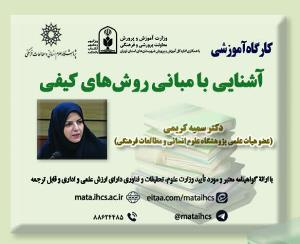واکاوی جریان شناسی و رویکرد قرآنیان شبه قاره هند
آرشیو
چکیده
قرآن بسندگان گروهی از مسلمانان اند که قرآن را تنها مصدر تشریع احکام قلمداد کرده، حدیث (یکی از مهم ترین منابع استنباط احکام) را انکار می کنند. رگه های سنت ستیزی به زمان حیات پیامبرﷺ برمی گردد. این تفکر در دو سده اخیر دوباره مجال رشد یافت و در شبه قاره به نهضتی همه گیر تبدیل شد. بررسی جریان شناسی و رویکرد این فرقه که آبشخور اصلی این تفکر هستند، اهمیت بسزایی دارد. دو عامل اهل حدیث و به ویژه استعمار، نقش عمده ای در شکل گیری این جریان ایفا کرده اند. در سده هجدهم شاه ولی اله و در سده نوزدهم احمد خان به بازنگری احادیث روی آوردند. به تبع ایشان، قرآنیان شبه قاره، در اوایل سده بیستم، به بازنگری احادیث پرداختند. در رأس این جریان در سده یادشده، چکرالوی و امریتسری قرار داشتند که هر دو تحت تأثیر افکار استعمار با توجه به بازنگری ای که در احادیث انجام دادند، درنهایت روایات را به طور کامل رد کردند و آن را منکر شدند و فرقه قرآنیان را در شهر لاهور و امریتسر طرح ریزی کردند. رویکرد قرآنیان شبه قاره عبارت است از: چگونگی عمل به سنت پیامبرﷺ و به کارگیری احادیث وی؛ چگونگی عصمت پیامبرﷺ در دریافت و ابلاغ حی؛ منابع تفسیر و دایره شمول آن؛ رجعت عیسی×؛ وجود بهشت و جهنم؛ چگونگی ادای نماز و روزه؛ تعدد زوجات. در این نوشتار کوشش شده است با رویکرد توصیفی– تحلیلی، به جریان شناسی و رویکرد قرآنیان شبه قاره پرداخته شود و سعی بر آن است دیدگاه های این فرقه نقد گردد.An Analysis of Current Studies and the Approach of the Qur'anists of the Indian Subcontinent
Qur'anists are a group of Muslims who consider the Qur'an as the only source of legislation and deny the Hadiths (one of the most important sources of deriving rulings). The signs of anti-traditionalism go back to the Prophet era. This thought could grow again in the last two centuries and became a widespread movement in the subcontinent. It is very important to examine the current studies and approach of this sect, which are the main source of this thought. Two factors of Ahl al-Hadith and especially colonialism have played a major role in the formation of this movement. In the 18th century, Shah Waliullah and in the 19th century, Ahmad Khan turned to the revision of hadiths. Following them, in the early 20th century, the Qur'anists of the subcontinent revised the hadiths. At the head of this trend in the mentioned century were Chakralawi and Amritsari, both of whom were influenced by the colonial thoughts according to the revision they made in the hadiths. In the end, they completely rejected the traditions and denied them and planned the sect of the Qur'anists in the city of Lahore and Amritsar. The approaches of the Qur'anists of the subcontinent consist of how to follow the Sunnah of the Prophet and apply his hadiths, how the Prophet is infallible in receiving and promoting revelation, sources of interpretation and its scope, return of Jesus, existence of heaven and hell, how to pray and fast and polygamy. This article seeks to deal with the current studies and approach of the Qur'anists of the subcontinent via a descriptive-analytical approach, and tries to criticize the views of this sect.







